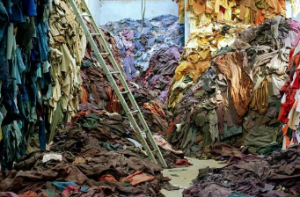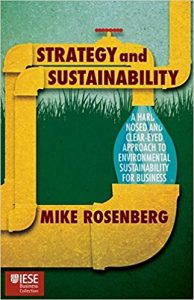For IESE Professors, the Christmass holidays are time for family, friends, gifts and most of all grading. Typically many of us will spend a signifiant portion of the holidays in our home office correcting papers, exams, and whatever else we ask the students to do.
This year, my students in Strategy & Sustainability, a course dealing with the link between business strategy and environmental sustainability, created wiki’s in groups and also sent in a personal video blog of 2-3 minutes.
Our full time MBA students tend to be men and women in their late 20’s and I find it interesting to track how their interests change form year to year. This year the wiki’s covered a wide range of topics including:
 How the rate of deforestation in the Amazon differs from country to country and the role of institutions and governance in solving the problem
How the rate of deforestation in the Amazon differs from country to country and the role of institutions and governance in solving the problem- The state of play in biofuels created from algae, tidal energy and electric cars. These were three different projects which more or less came out saying that algae fuels were far off, tidal makes sense for certain places and electric cars are coming fast
- Sustainable agriculture looked at the apparent trade off between large scale, highly productive farms and smaller scale, more sustainable practices
- Sustainable architecture looked at the different certifications available for green buildings in different parts of the world
 Sustainable fashion which highlighted the incredible amount of waste that our collective desire for the newest fashions create
Sustainable fashion which highlighted the incredible amount of waste that our collective desire for the newest fashions create- Another wiki looked at the balance between our advanced consumer society and sustainability with a particular emphasis on the role of plastics
- Another showed examples of companies which are both profitable and sustainable drawing a distinction between those that have sustainability built into their business model and others which seem to be more about the marketing and public relations value alone
- The last one dealt with the issue of gentrification and how to develop cities in a way which are socially sustainable
Overall the video blogs showed a higher degree of idealism than cynicism although there were examples of both. Many discussed the tragedy of the commons which can be seen in many different industrial sectors around the world. All agreed on how complex the issue of sustainable can become when one really drills down into the details of just about anything.
The objective of the course is to prepare students to either play an active role in guiding the response of industrial and service companies to sustainability and/or to help develop strategy for firms and institutions involved with the issue.
Working with such people is a privilege and I feel confident that these men and women can:
 Distinguish between different levels of environmental sensitivity that exist in different sectors of the economy and in different parts of the world.
Distinguish between different levels of environmental sensitivity that exist in different sectors of the economy and in different parts of the world.- Evaluate what is the appropriate level of response for a given firm in light of the evolving requirements of regulators and civil society.
- Apply a number of frameworks with which to approach the issue of sustainability including the ones I developed in Strategy and Sustainability!
- Gain an appreciation for the complexity of the issues involved and learn to categorize environmental claims and business motivations.
- Perform a critical evaluation of the environmental issues at play in a given business context and formulate a strategic approach to environmental sustainability.

